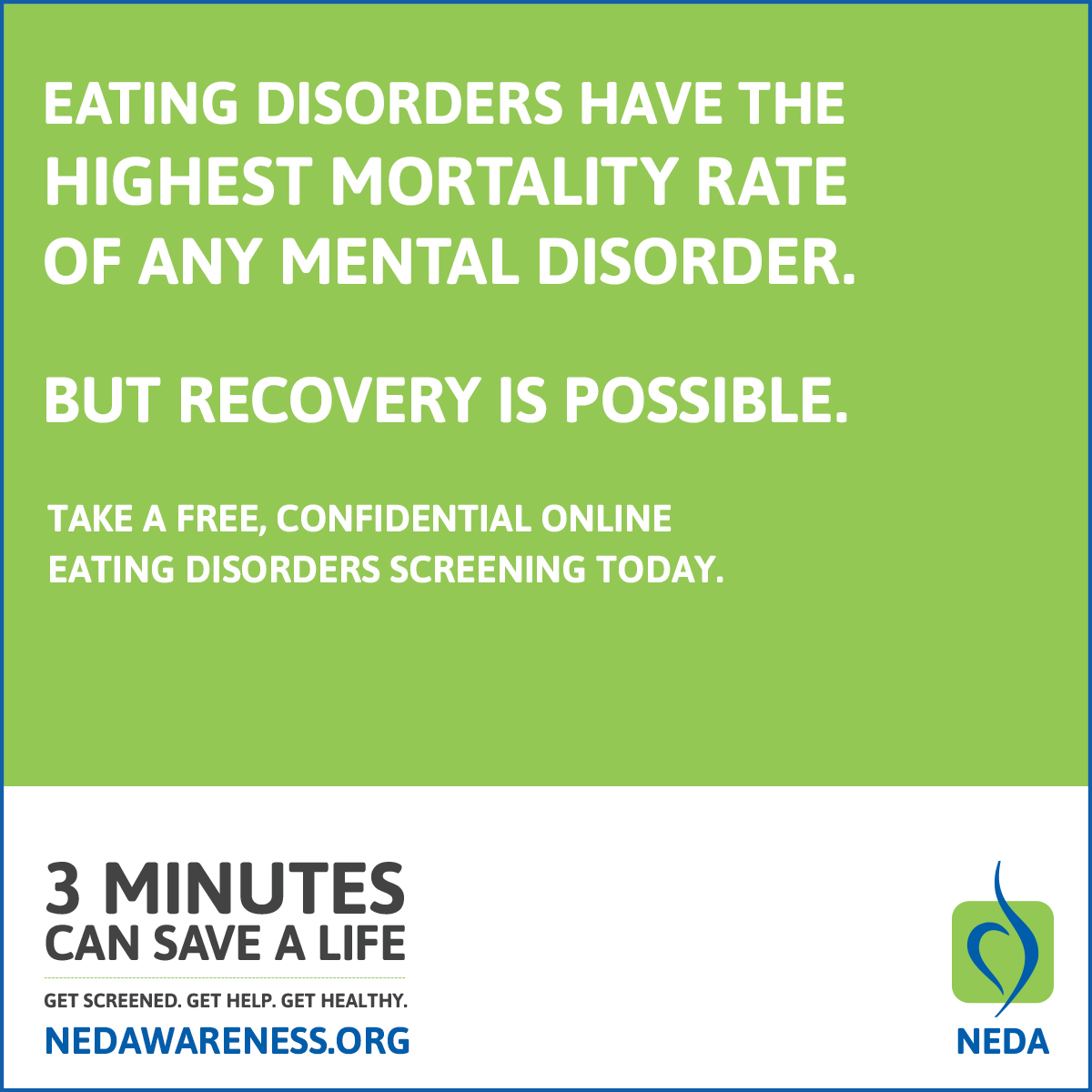
February 21 through 29 is Eating Disorders Awareness Week(link is external), an observance organized by the National Eating Disorder Association(link is external) (NEDA). This year’s theme: “3 Minutes Can Save a Life: Get Screened. Get Help. Get Healthy.” promotes early intervention and education about the causes, dangers and treatments for eating disorders. Brad E.R. Smith, MD, medical director of eating disorder services at Rogers Memorial Hospital–Oconomowoc, explains that this national observance is a great opportunity to seek out available programming options.
Whether you realize it or not, it is very likely that you or someone you know is affected by an eating disorder. “Up to 30 million men, women and children in the United States suffer from anorexia nervosa, binge eating disorder, bulimia, or other eating disorder,” he says. “People with eating disorders also have a higher mortality rate than those with any other mental illness.” So what are some of the factors that make this such a dangerous disease?
“One of the biggest challenges we face is that people who have eating disorders may not recognize that they are ill and so they may be resistant to accept treatment,” says Dr. Smith. “People with eating disorders have a tendency to minimize, rationalize, or hide their eating disorder symptoms and behaviors. They might also seek out a variety of specialists and interventions that address the serious medical consequences of their behavior without tackling their underlying problem—because in all cases, it is never just about the food.”
Rogers Memorial Hospital offers multiple levels of care for eating disorder treatment, including inpatient, residential, partial and intensive outpatient programs. “A number of effective treatments for eating disorders exist for children, teens and adults,” he says. ”This includes cognitive behavioral therapy (CBT), a type of psychotherapy that addresses an individual’s thoughts, behaviors, and feelings to make changes.”
Even with the right treatment approach and a multidisciplinary team, achieving lasting recovery still takes time.
“Recovery doesn’t happen overnight because we are interrupting harmful eating behaviors that have become deeply engrained and almost unconscious for many,” says Dr. Smith. “Treatment helps people with eating disorders to change what they do, normalize their eating habits and reframe the irrational thoughts that sustained their disordered eating behaviors.”
How we can help
For admission information or a free screening, call 800-767-4411, or submit an online screening request.
If you do not feel your child needs treatment right away, but may be concerned, we offer online quizzes to possibly provide some relief. While these quizzes do not provide a diagnosis, it could be the first step in finding the treatment you may need. Take our online Eating Disorder Quiz today.


